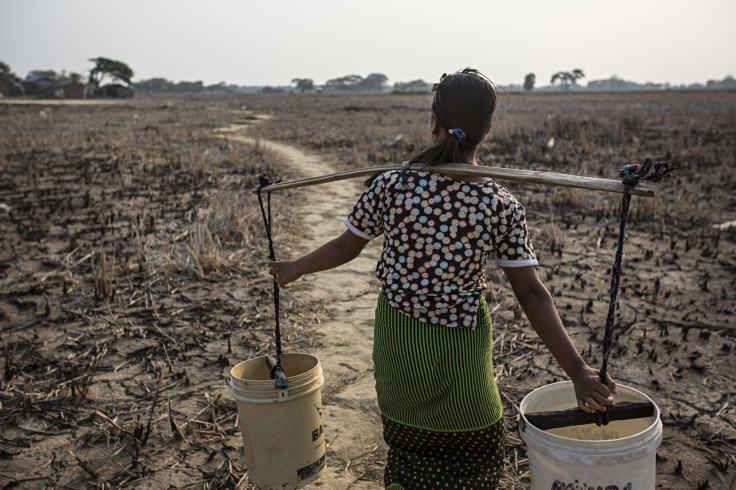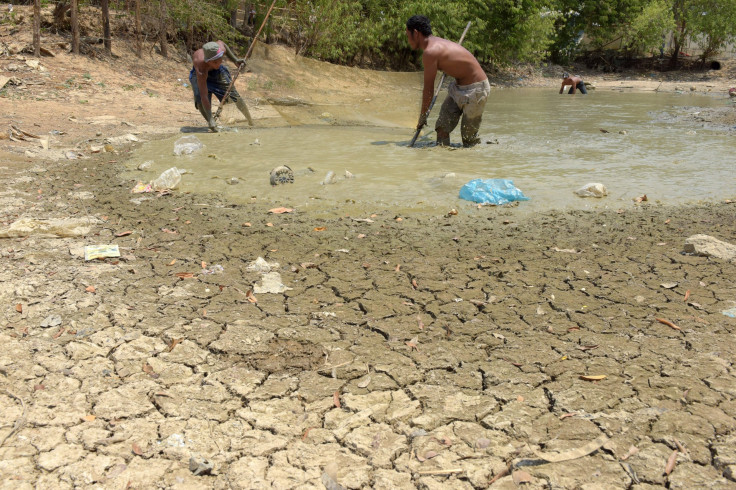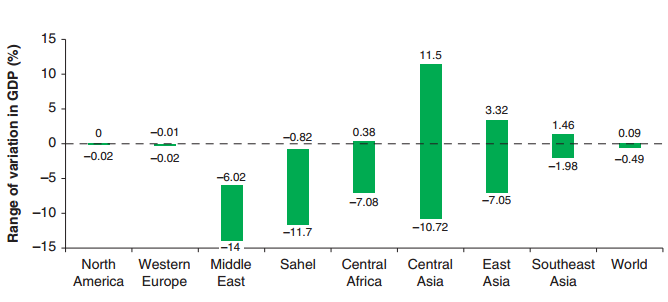Global Warming And Water Scarcity Could Cause Economies To Shrink By Mid-Century: World Bank Report

Many of the world’s economies could shrink in the next few decades as climate change makes it harder to find fresh water supplies.
The lack of water could spur waves of migration, spark conflicts within countries and cause food prices to spike to untenable levels, the World Bank warned in a report this week. Researchers found economies in Africa’s central and Sahel regions, East Asia and the Middle East could see growth rates decline by up to 6 percent of gross domestic product (GDP) by 2050 due to water-related losses in agriculture, health, income and property.
“Water scarcity is a major threat to economic growth and stability around the world, and climate change is making the problem worse,” Jim Yong Kim, the World Bank’s president, said in a statement. “If countries do not take action to better manage water resources, our analysis shows that some regions with large populations could be living with long periods of negative economic growth.”
Still, “countries can enact policies now that will help them manage water sustainability for the years ahead,” he added.
Global temperatures are rising as greenhouse gas emissions soar, largely thanks to human activities such as burning fossil fuels for energy and clearcutting forests, scientists say. As the planet warms, droughts and extreme floods will become more frequent and intense, while snowfall will be replaced by rain, which evaporates faster. Shrinking mountain snow packs and melting inland glaciers will deplete fresh water resources, while rising sea levels will cause saltwater to taint the groundwater.

Local economies and agricultural producers are already suffering the effects of water scarcity and global warming. In Guatemala, coffee farmers and ramón seed gatherers have seen their harvests shrink as the regular replenishing rainfalls grow varied and scarce. Banana growers in Honduras are producing less of the yellow fruit amid hotter weather and longer droughts.
In California, climate change has caused as much as one-fourth of the state’s brutal five-year drought, scientists estimated. Workers and residents across the Central Valley are moving in droves to other cities as fields that once grew cotton, pistachio, watermelon and garlic lie barren.
The World Bank’s report, unveiled Tuesday, said water scarcity would have a relatively small impact on the global economy, at roughly half a percent of global GDP in 2050. But researchers said the total loss was a “highly misleading estimate” given that major variations exist between regions. For instance, Western Europe and North America, where much of the world’s GDP is produced, will see “negligible” damages related to water scarcity in coming decades.
The Middle East, by contrast, could see GDP growth slip as much as 14 percent within 35 years due to climate-related effects and declines in freshwater supplies, the Washington-based institution said in the report. Governments in the region could stave off some of this damage by adopting efficiency efforts and investing in technologies such as desalination and water recycling.

In the Sahel, the semi-arid belt stretching from Senegal to Sudan, climate-related impacts could shrink GDP by up to 11.7 percent by 2050. Central Asia could see GDP shrink by 10.7 percent, while economies in East Asia and Central Africa could shrink by up to 7 percent.
“Since economic growth spurs water demand in rough proportion to the income it generates, there are legitimate concerns that expanding water deficits in some regions could constrain growth,” the World Bank said in its report. The worst-case economic projections assume policymakers and companies will continue a “business as usual” approach to water consumption and not take steps to conserve water supplies.
The report arrives weeks after leaders from 175 countries signed an agreement reached in Paris to slash greenhouse gas emissions, invest in lower-carbon energy and help the most vulnerable nations adapt to global warming impacts.
© Copyright IBTimes 2024. All rights reserved.





















